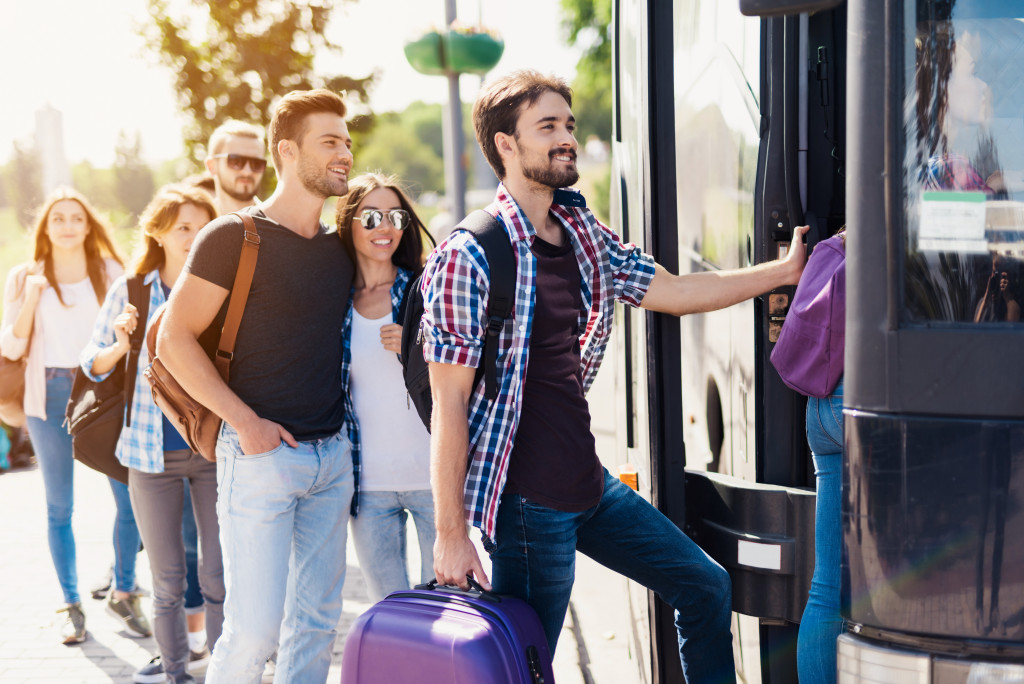Tourists are likely targets for criminals. They’re usually vulnerable and in an unfamiliar place, carrying a large amount of money and valuables, and will have more trouble identifying possible culprits.
While traveling is a great way to broaden your perspective and experience other cultures, as a tourist, you have to keep yourself and your luggage safe. Here are 7 tips to help you do that.
1. Research Your Destination
Learn everything you can about your destination before deciding on it. Read traveler reviews. Get a map of the area and study it a bit so you don’t get lost.
Write down emergency contact info for the nearest embassy or consulate, police station, and other local emergency departments.
Don’t be afraid to ask for help, especially from embassies. Their main purpose is to assist citizens that live in or travel to the countries they’re in.
Picking a safe place to visit might be the easiest yet most effective means of keeping safe. If you’re just looking for a good vacation spot, Singapore is a safe, clean, place. One of the largest airports in Singapore even has a hotel, so you would be all set.
That said, vacations aren’t the only reason people travel. People are likely to go to specific countries, even if they’re less safe because they want to experience that particular culture. And that’s great.
Just make sure that regardless of where you choose to go, you know what you’re doing.
2. Talk to the Locals
Another thing to research is useful phrases in the local language. Locals are generally friendly and know things you won’t find online.
Ask them for info about safe and dangerous neighborhoods. If walking up to a random person is too intimidating a prospect, you can ask the staff at the hotel you’re staying in.
Be careful not to talk about your plans too much though. It poses a risk to you if strangers know where you are and at what time. The hotel staff knows where you’re staying, of course, but no one else needs to know.
3. Regularly Update Family and Friends
Make sure your family and friends know where you are. Email your itinerary to them, and send a quick message whenever you leave or arrive at your hotel.
This isn’t just for their peace of mind, it’s for your safety as well. If something happens and prevents you from contacting them when you regularly do, they might be able to infer that there is an emergency and can contact the embassy.
Or better yet, travel with them. You’re much less vulnerable traveling with someone you know and can keep each other safe.
4. Dress inconspicuously.
You will look different from the locals regardless, but it helps to be a little less visible by wearing clothes similar to them. If people can infer that you’re a tourist with a quick glance from your clothes, you’re more likely to attract criminals.
Don’t wear jewelry and keep valuables hidden. Use anti-theft clothing and gear like a slash-proof backpack.
5. Look Out for Travel Scams
Inform yourself of the common scam tactics in your area. This is also something you can learn from the locals.
Pay attention to your surroundings. Simply showing that you’re aware of people around you will make scammers less likely to target you since they know you’re paying attention. Confident body language goes a long way towards deterring criminals.
6. Secure Your Room

While your hotel will have its own security measures, it’s good to have your own. Always lock your door. Prevent break-ins with a portable door jammer.
Never let strangers in. Even if they say they’re part of the hotel staff, make a call first to ask if they sent someone for room service.
7. Prepare for Emergencies
Hopefully, it will never come to it but be prepared for emergencies. Hide emergency cash, keep important documents and copies in a safe place, and take note of emergency exits.
If you have the time, learn self-defense and first-aid. These aren’t just useful when traveling either. It helps to have this knowledge whether you’re traveling or just going through your usual daily routine.
Finally, get travel insurance. You might think that you don’t need it, but you will once an actual emergency occurs. Most plans cover medical emergencies, trip cancellations, interruptions, and delays, and lost, damaged, or stolen luggage.
Follow these tips and you’ll be able to keep yourself safe during your travels. It might seem like a hassle, but a little extra time spent preparing is nothing compared to your safety.

